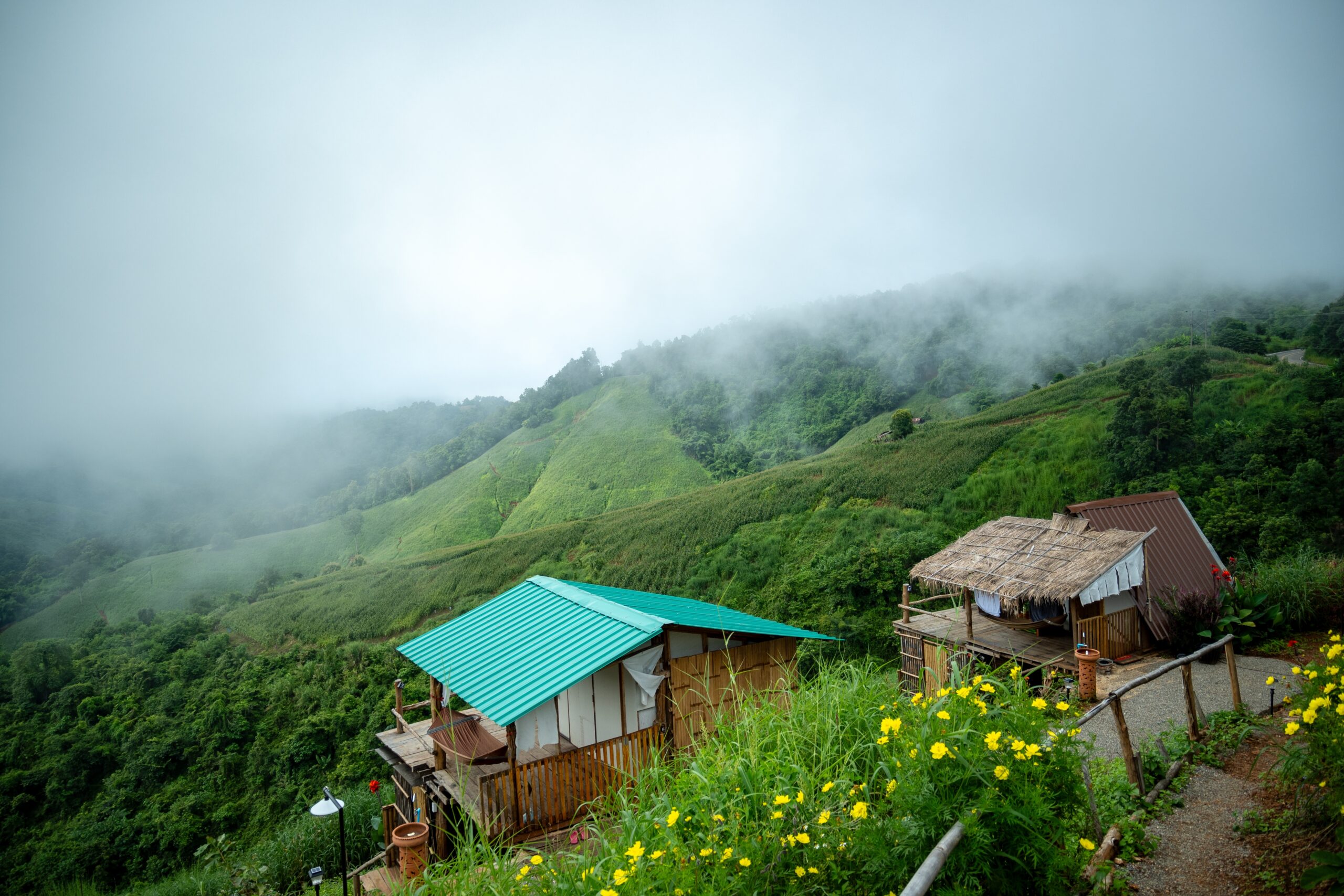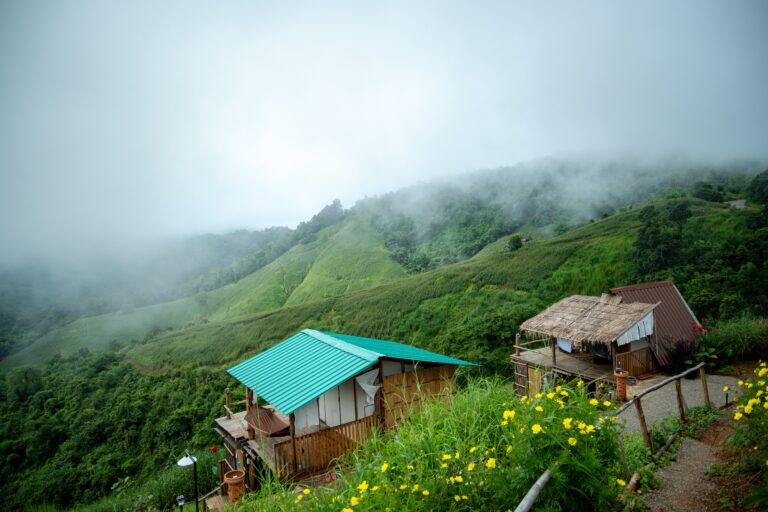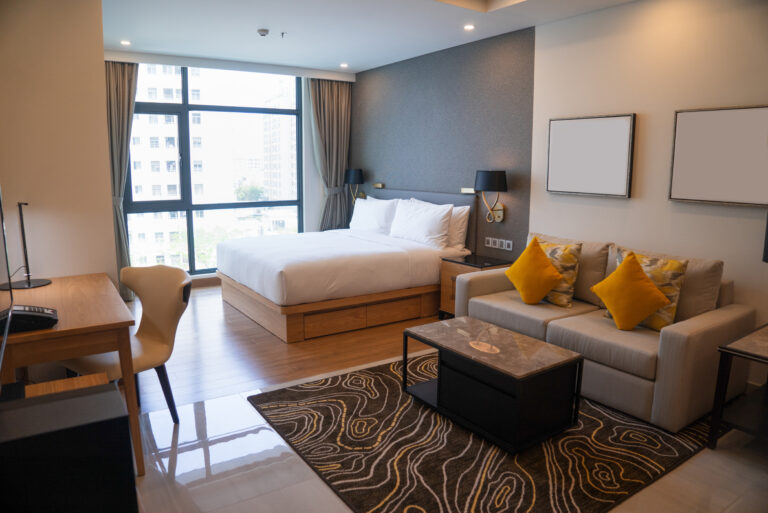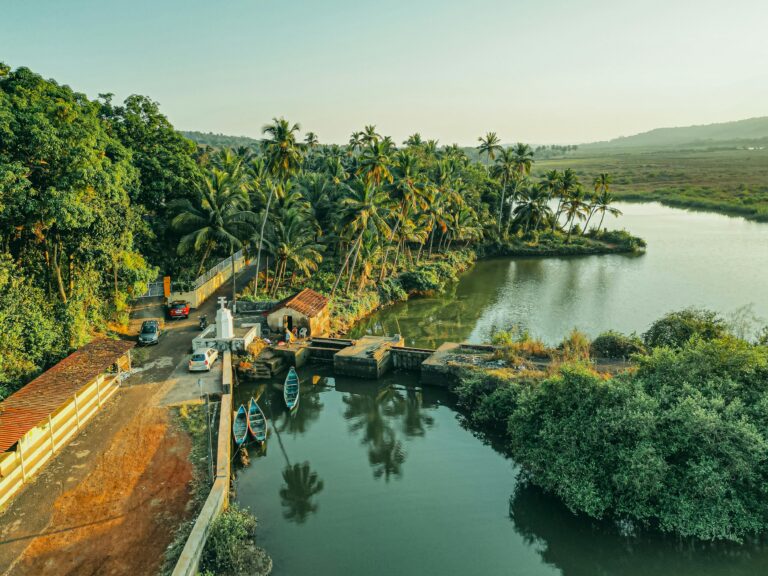10 Best Places to Start Airbnb in India: 2025 ROI & Profit Guide

After more than a decade in Indian real estate and hospitality investment, I’ve seen countless people jump into the Airbnb game. Finding the right location in India, however, can be tricky. With over 100 major cities, a wrong turn can lead to an empty booking calendar and disappointing returns. The hard truth? Nearly 40% of new hosts in India don’t break even in their first year. They often pick a place they love, not a place that earns.
I’m Ritu Mathur, and this guide is built on data, not just vacation dreams. For this 2025 analysis, we’ve crunched the numbers on occupancy rates, daily pricing, and revenue across India’s cities to show you where smart investors are putting their money. Our insights use reports from Airbtics.
This guide covers the top 10 most profitable cities ranked by ROI, their investment costs, expected returns, and the key factors for success in each market.
Top 10 Most Profitable Airbnb Cities in India for 2025
Our rankings are based on a combination of average occupancy rates, daily rates, annual revenue potential, and the overall investment climate. The data shows clear winners emerging in both traditional tourist hubs and growing business centers.
| Rank | City | Avg. Occupancy | Avg. Daily Rate (₹) | Est. Annual Revenue (₹) |
| 1 | Mumbai | 61% | ₹4,339 | ₹938,924 |
| 2 | Goa | 49% | ₹4,173 | ₹742,209 |
| 3 | New Delhi | 49% | ₹3,338 | ₹574,538 |
| 4 | Bengaluru | 49% | ₹2,003 | ₹368,308 |
| 5 | Chennai | 54% | ₹2,837 | ₹544,326 |
| 6 | Hyderabad | 44% | ₹2,921 | ₹459,697 |
| 7 | Jaipur | 35% | ₹2,837 | ₹370,145 |
| 8 | Pune | 46% | ₹2,420 | ₹415,380 |
| 9 | Gurgaon | 34% | ₹2,754 | ₹349,447 |
| 10 | Kolkata | 46% | ₹2,336 | ₹393,430 |
1. Mumbai: Premium Returns in India’s Financial Capital
Mumbai tops our list with the highest daily rates and strong occupancy. The city’s mix of business travelers and tourists creates steady, year-round demand. I once had a client who hesitated on a Bandra property because of the price. Today, it’s his top-earning rental, proving that in Mumbai, you pay for prime access, and it pays you back.
Best Neighborhoods:
- Bandra West (luxury market)
- Colaba (tourist hotspot)
- Powai (business travelers)
- ROI Potential: 8-12% annually. Premium sea-facing properties command the highest returns.
- Investment Considerations: Expect high upfront costs. A 2BHK in Bandra West can cost upwards of ₹4.5 crore.
- Target Market: Corporate travelers are the foundation of weekday bookings, while domestic tourists fill the weekends.
Mumbai Investment Breakdown (2BHK Property)
| Cost Component | Amount (₹) |
| Property Purchase | 1.5-2 Cr (basic) / 4.5+ Cr (premium) |
| Interior Furnishing | 10-20 Lakhs |
| Appliances | 3-7 Lakhs |
| Brokerage & Registration | 50,000-2 Lakhs |
| Total Initial Investment | 1.64-2.3 Cr (basic) |
Monthly Operational Costs:
- Society charges: ₹5,000-10,000
- Utilities: ₹4,000-10,000
- Maintenance & cleaning: ₹5,000-15,000
- Platform commissions (3-16% per booking)
- Property management (if outsourced): 10-20% of revenue
2. Goa: The Tourism Goldmine
Goa remains India’s vacation rental paradise. It has strong seasonal demand and friendlier regulations compared to major cities. Just be prepared for your off-season property to become a personal monsoon-watching retreat if you don’t price it right.
- Best Areas: North Goa properties near popular beaches command premium rates, especially those with a pool or unique character.
- ROI Potential: While occupancy averages 49% annually, this jumps to over 80% during the peak season (November-February), delivering returns of 7-10%.
Goa Seasonal Performance Analysis
| Season | Monthly Occupancy | ADR (₹) | Peak Characteristics |
| Peak (Nov-Feb) | 80%+ | 7,000-8,000 | December is the strongest month |
| Off-Season (Jun-Sep) | 35-50% | 3,000-4,000 | Monsoon impact |
| Shoulder Season | 60-70% | 4,000-5,000 | Festival periods |
Platform Selection: Choosing the right platform here is critical. Properties listed on platforms like Hireavilla can see higher occupancy rates for villas compared to listings on general sites. For hosts getting started, the official Airbnb Hosting in India (Help Center) offers some useful resources.
Goa Investment Breakdown (2BHK Property)
| Cost Component | Amount (₹) |
| Property Purchase | 80L-1.2 Cr / 2.5+ Cr (villa) |
| Initial Setup | 11-23 Lakhs |
| Monthly Operations | ₹8,000-20,000 |
Seasonality Strategy:
- Implement dynamic pricing with 2-3x higher rates during peak season
- Target international tourists for the winter peak
- Offer monthly rentals to digital nomads during the off-season
- Bundle amenities during shoulder seasons
3. New Delhi: Stable Corporate Hub
The nation’s capital offers consistent year-round demand from business travelers, tourists, and diplomatic staff.
- Prime Locations: Central Delhi and South Delhi, especially areas like Defence Colony and Greater Kailash, perform the strongest.
- ROI Factors: Daily rates are slightly lower than Mumbai’s, but steady occupancy creates a reliable income stream.
- Regulatory Requirements: Registration under the Delhi Shops and Establishments Act is required. The trade license costs ₹2,000-10,000 annually and can take 2-4 weeks. Navigating the paperwork can feel like a part-time job, but it’s much better than receiving a notice from the Municipal Corporation, they aren’t known for their sense of humor.
Legal Compliance Process for Delhi
| Requirement | Cost | Timeline | Key Steps |
| Society NOC | ₹500-5,000 | 2-6 weeks | Application to RWA |
| Trade License | ₹2,000-10,000 | 2-4 weeks | Municipal Corporation |
| GST Registration | ₹1,000-5,000 | 7-21 days | If revenue >₹20 lakhs |
Common NOC Denial Reasons:
- Resident security concerns
- Society bylaws prohibiting commercial activity
- Inadequate fire safety measures
- Poor guest documentation procedures
- Previous noise/disturbance complaints
4. Bengaluru: Tech Sector Advantage
Bengaluru’s booming tech industry creates strong demand for short and medium-term rentals. For deeper insights on location management, some hosts use tools from providers like iGMS.
Target Areas: Indiranagar, Koramangala, and Whitefield attract the most bookings due to their proximity to tech parks and entertainment zones.
Who Stays in Bengaluru?
Your main guests will be IT executives, startup founders, and project managers. Many are now blending business trips with leisure, often extending a three-day work trip into a five-day stay. This means certain amenities are non-negotiable: fast internet (at least 50-100 Mbps), a proper workspace, and easy access to major tech hubs. Bookings are often made at the last minute, so having your calendar up to date is essential.
ROI Profile: Lower daily rates than Mumbai or Goa but consistent occupancy generates reliable returns of 6-8%.
5. Gurgaon: Corporate Travel Center
Gurgaon’s status as a corporate hub creates strong weekday demand for business-friendly accommodations.
Prime Locations: Properties near Cyber City and Golf Course Road command the highest rates due to corporate demand.
Who Stays in Gurgaon?
Here, you’ll cater to IT and finance professionals who need modern, well-equipped apartments. They value convenience, so think about proximity to business centers like Cyber City, contactless check-in, and maybe even bundled services like taxi bookings. Corporate platform bookings are common.
ROI Range: 6-9% annually, with premium properties delivering the strongest returns.
6. Jaipur: Heritage Tourism Appeal
Jaipur’s unique place in the heritage tourism market creates opportunities for distinctive properties. If you can find a property with a bit of history or charm, you can charge a premium. I’ve seen simple Havelis outperform modern apartments here.
Property Types: Heritage havelis and boutique properties attract premium rates, especially those near the old city.
Jaipur Seasonal Analysis
| Season | Performance | Strategy |
| Peak (Oct-Mar) | 70%+ occupancy, ADR ₹6,000+ | Target festival seasons, wedding bookings |
| Off-Season (Apr-Sep) | <50% occupancy, ADR ₹4,000-5,000 | Corporate retreats, long-stay discounts |
Investment Strategy: Look for properties with character features that can justify premium pricing. Consider corporate event hosting during off-peak months.
7. Chennai: Strong Southern Market
Chennai offers an attractive mix of business travel and tourism with surprisingly strong occupancy. It’s a balanced market where property costs aren’t as shocking as in Mumbai, but the returns are healthy.
- Key Areas: T. Nagar, OMR, and ECR attract different target markets, from business travelers to beach tourists.
- Investment Appeal: Lower initial property costs compared to Mumbai and Delhi while maintaining healthy daily rates makes Chennai a balanced investment.
Comprehensive Investment Cost Analysis
Initial Setup Costs by City (2BHK Property)
| City | Furnishing & Appliances | Registration & Permits | Total Setup (excl. property) |
| Mumbai | ₹13-27 Lakhs | ₹60K-2.7L | ₹14-30 Lakhs |
| Goa | ₹10-22 Lakhs | ₹10K-70K | ₹11-23 Lakhs |
| Delhi | ₹11-23 Lakhs | ₹50K-2.7L | ₹12-25 Lakhs |
Monthly Operational Expenses (2BHK Properties)
| Expense Category | Mumbai | Goa | Delhi |
| Society Charges | ₹5,000-10,000 | ₹2,000-7,000 | ₹3,000-8,000 |
| Utilities | ₹4,000-10,000 | ₹4,000-10,000 | ₹4,000-10,000 |
| Maintenance & Cleaning | ₹5,000-15,000 | ₹5,000-15,000 | ₹5,000-15,000 |
| Platform Commissions | 3-16% per booking | 3-16% / 12-16% (managed) | 3-16% per booking |
Platform Comparison: Airbnb vs. Hireavilla
Commission Structure & Services
| Platform | Commission | Property Types | Target Market | Services Included |
| Airbnb | 3-16% host fee + guest service fee | All property types | Broad international/domestic | Basic marketplace, AirCover insurance |
| Hireavilla | 12-16% revenue share | Premium villas only | Affluent families, corporate retreats | Full management, concierge, professional cleaning |
Geographic Coverage
- Airbnb: Pan-India operation including all major cities
- Hireavilla: Focus on 10 leisure markets (Goa, Lonavala, Alibaug, Karjat, Mahabaleshwar, Panchgani, Khandala, Igatpuri, Pawna, Nashik)
- Platform Selection Strategy: For luxury villas in Goa and similar leisure destinations, Hireavilla often delivers superior occupancy rates and hands-off management. For apartments and diverse property types in metro cities, Airbnb provides broader market reach.
Legal Compliance Guide: Mumbai & New Delhi
Required Permissions & Licenses
Step 1: Housing Society NOC
- Timeline: 2-6 weeks
- Cost: ₹500-5,000 (society dependent)
- Requirements: Application detailing guest management and safety protocols
Step 2: Municipal Registrations
- Mumbai: BMC Guest House/B&B registration
- Delhi: Trade license under Shops and Establishments Act
- Timeline: 2-4 weeks
- Cost: ₹2,000-25,000 annually
Step 3: Tax Compliance
- GST Registration: Mandatory if annual revenue >₹20 lakhs
- Cost: ₹1,000-5,000 (with professional help)
- Timeline: 7-21 days online
Common Compliance Challenges
NOC Rejection Reasons:
- Resident security concerns
- Society bylaws prohibiting commercial activity
- Inadequate fire safety measures
- Poor guest documentation procedures
- Previous noise/disturbance complaints
Strategies for Higher Earnings
Dynamic Pricing Implementation
Peak Season Strategy (Goa, Jaipur):
- Increase rates 200-300% during festival seasons
- Implement minimum stay requirements
- Bundle premium amenities
Corporate Market Strategy (Bengaluru, Gurgaon):
- Offer corporate rates for extended stays
- Partner with local businesses for package deals
- Focus on weekday optimization
Amenity Investment Priorities
High-ROI Amenities:
- High-speed Internet (50-100 Mbps minimum)
- Dedicated workspace with quality furniture
- Premium bedding and linens
- 24/7 security systems
- Professional photography and staging
Financial Performance Analysis
Net Profit Impact Analysis
Mumbai Example (2BHK):
- Gross Annual Revenue: ₹9.4 lakhs
- Less: Platform commissions (10%): ₹94,000
- Less: Operational expenses: ₹3 lakhs
- Net Profit: ₹5.5-6 lakhs
- ROI on ₹2 crore investment: 2.75-3%
Goa Example (2BHK):
- Gross Annual Revenue: ₹7.4 lakhs
- Less: Management fees (15%): ₹1.1 lakhs
- Less: Operational expenses: ₹2 lakhs
- Net Profit: ₹4.3 lakhs
- ROI on ₹1.2 crore investment: 3.6%
Note: These ROI calculations exclude property appreciation, which can significantly increase total returns in prime locations.
Your 12-Week Action Plan to Launch
Phase 1: Research (Week 1-2)
- Visit target cities and stay in competing rentals.
- Analyze local demand patterns and pricing.
- Assess the regulatory environment and community acceptance.
Phase 2: Property Selection (Week 3-4)
Location Criteria:
- Within 5-10 minutes of key demand drivers
- Building amenities that improve the guest experience
- Renovation potential for unique features
- Compliance with local zoning laws
Phase 3: Legal Setup (Week 5-8)
- Obtain society NOC and municipal permits.
- Set up a business structure for tax efficiency.
- Secure appropriate insurance coverage.
- Register with relevant platforms.
Phase 4: Property Preparation (Week 9-12)
- Hire a professional interior designer focused on durability.
- Install business-grade internet and a workspace.
- Create an excellent listing with professional photography.
- Establish operational systems for cleaning and maintenance.
Phase 5: Launch & Optimization (Ongoing)
- Implement a competitive pricing strategy.
- Track key performance metrics monthly.
- Collect and act on guest feedback.
- Make continual property improvements and updates.
Key Success Factors
At the end of the day, profitability boils down to a few core elements:
- Location Selection: Proximity to business districts, tourist attractions, or transport hubs.
- Amenity Standards: High-speed Wi-Fi, a comfortable workspace, and quality furnishings.
- Professional Management: Either self-managed with good systems or outsourced to professionals.
- Regulatory Compliance: All required permits and society approvals must be in place.
- Dynamic Pricing: Real-time rate adjustments based on demand.
FAQs
1. Where is Airbnb most profitable in India?
Mumbai consistently ranks as India’s most profitable market, with annual revenues averaging ₹938,924. This is driven by high daily rates (₹4,339) and strong occupancy (61%). Goa follows closely with premium rates during peak tourist seasons.
2. What are the total setup costs for a 2BHK Airbnb in Mumbai?
Expect to spend ₹14-30 Lakhs for the initial setup (excluding property purchase). This covers furnishing (₹10-20L), appliances (₹3-7L), and compliance costs (₹50K-2.7L). The property purchase itself can range from ₹1.5-4.5+ crore depending on the location.
3. How much commission do Airbnb and Hireavilla charge?
Airbnb typically charges hosts 3-16% plus guest service fees. Hireavilla charges a 12-16% commission but provides full-service management, including cleaning, guest communication, and maintenance.
4. What legal permissions are required for Mumbai and Delhi?
Both cities require a society NOC (₹500-5,000, 2-6 weeks), a municipal trade license (₹2,000-25,000, 2-4 weeks), and GST registration if revenue exceeds ₹20 lakhs annually.
5. Is Airbnb a good investment in India?
Yes, a well-located property in a top market can deliver a 6-12% ROI annually before considering property appreciation. Success depends on location, professional management, and full regulatory compliance. For more detailed investment insights, you can review resources like CreditDharma.





